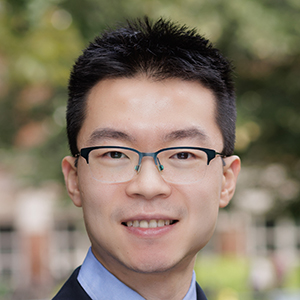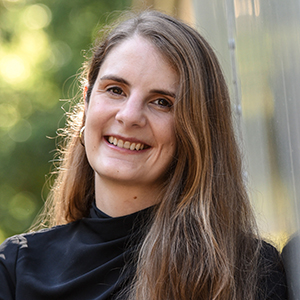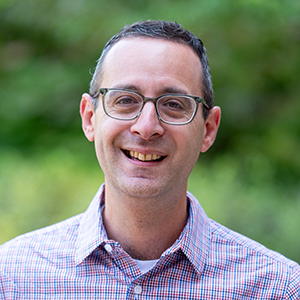Society Awards
Nominations for the 2026 Society Awards will open in August. To encourage all SAS members to participate in the important process of recognizing the accomplishments of our members, the nomination form is very brief (just name, email, and award category).
We encourage self- and other-nominations, particularly from individuals who have been a member of SAS for at least 3 consecutive years (for early career) and 5 consecutive years (for mid career and mentorship), and who have made important contributions to diversity and open science, broadly defined.
Award winners will each receive a physical award, complimentary registration for the annual conference, and an opportunity to speak during the awards session at the annual conference.
Best Dissertation in Affective Science Award
This honor recognizes outstanding dissertation research conducted by SAS members who received their PhD (or other terminal degree) during the calendar year immediately preceding that year’s SAS meeting.
2025 Winner

Ke Wang
University of Virginia
For their dissertation “Essays on Emotion and Decision Making, with Implications for Policy” that was completed at Harvard University under the mentoring of Professors Jennifer Lerner, Amit Goldenberg, and James Gross.
Ke is a postdoctoral fellow at the Darden School of Business, University of Virginia. He earned his Ph.D. in Public Policy with a focus on Management, Leadership, and Decision Science from Harvard University, a Master’s in Psychology from the University of Chicago, and a Bachelor’s in Psychology from Wuhan University.
His research consists of two streams. In the first stream, he studies how we navigate and shape emotions-our own and others’-to make wiser decisions and foster well-being. In the second stream, he explores how we navigate and shape communication around diversity, equity, and inclusion to create more supportive workplaces. He has published research in leading journals such as Nature Human Behaviour, Proceedings of the National Academy of Sciences, Journal of Experimental Social Psychology, and Affective Science.
His doctoral dissertation deepens our understanding of the role specific positive emotions play in decision-making and the long-term impact of emotion regulation. The first chapter, based on five studies, found that gratitude, unlike other positive emotions, reduced tobacco use-a major preventable cause of death. The second chapter, with two studies, revealed that gratitude could increase cheating when it benefits others. The final chapter, which included two studies, showed that a brief, low-cost online reappraisal intervention achieved sustained benefits six months later. Together, the studies extended classic conceptions about appraisal processes to contemporary theories of affective science and decision-making in health, moral, and organizational contexts. The findings hold substantial policy implications for enhancing life expectancy, curbing dishonesty, and fostering workforce well-being.
Honorable Mentions
Connor Keating
University of Birmingham
Anh Tran
University of Melbourne
Previous Winners
2024:
Anthony Vaccaro, PhD, University of Southern California – “The neuroscience of ambivalent and ambiguous feelings” that was completed at University of Southern California under the mentoring of Professors Jonas Kaplan and Antonio Damasio.
2023:
Daphne Y. Liu, PhD, Stony Brook University – “Interpersonal emotion regulation in current and remitted major depressive disorder: An experience sampling study” that was completed at Washington University in St. Louis under the mentoring of Professor Renee J. Thompson.
Sean Dae Houlihan, PhD, MIT, Dartmouth – “A computational framework for emotion understanding” that was completed at the Massachusetts Institute of Technology in September 2022 under the mentoring of Professors Rebecca Saxe and Josh Tenenbaum.
2022:
Hannah S. Savage, PhD, The Donders Institute for Brain, Cognition and Behaviour, Radboud University and Radboud University Medical Center. – “The neural basis of threat and safety reversal learning in healthy subjects and patients with social anxiety disorder” that was completed at the University of Melbourne under the mentoring of Professor Ben Harrison.
Meltem Yucel, PhD, Duke University – “’No fair!’: An investigation of children’s development of fairness” that was completed at University of Virginia in May 2021 under the mentoring of Professor Amrisha Vaish.
2021:
Jennifer K. MacCormack, Ph.D.,University of Pittsburgh – “Minding the body: The role of interoception in linking physiology and emotion during stress” – Completed at University of North Carolina at Chapel Hill under the mentoring of Professor Kristen Lindquist.
Early-Career in Affective Science Award
This honor recognizes scientific contributions and early evidence of impact for SAS members who received their PhD (or other terminal degree) fewer than 10 years prior to that year’s SAS meeting.
2025 Winner

Elise Kalokerinos
University of Melbourne
Dr. Elise Kalokerinos is the co-director of the Functions of Emotion in Everyday Life (FEEL) Lab at the University of Melbourne. She completed her PhD in social psychology at the University of Queensland, and a Marie Curie postdoctoral fellowship at KU Leuven. Her research investigates emotion and emotion regulation in everyday life, using ecological momentary assessment to map emotional experiences as they unfold across time. With these dynamic data, she maps the processes that enable real-world emotion regulation, including emotion differentiation, regulatory flexibility, and motivation. She also aims to open daily-life methods to a broader audience, including through EMOTE (emotedatabase.com), a large-scale open-access repository of daily-life data on emotion processes. Her research has been published in leading affective science and generalist journals including Emotion, Affective Science, PNAS, and Psychological Science.
Previous Winners
2024:
Brett Q. Ford, PhD, University of Toronto
2023:
Jonathan Stange, PhD, University of Southern California
2022:
Daryl Cameron, PhD, Pennsylvania State University
Dylan Gee, PhD, Yale University
2021:
Katharine H. Greenaway, PhD, University of Melbourne
Mid-Career Trajectory in Affective Science Award
This honor celebrates the outstanding scientific impact of SAS members who received their PhD (or other terminal degree) more than 10 and fewer than 25 years prior to that year’s SAS meeting.
2025 Winner

Derek Isaacowitz
Washington University in St Louis
Derek M. Isaacowitz is Professor of Psychological and Brain Sciences and Director of the Lifespan Lab at Washington University in St Louis. He joined the WashU faculty after serving on the Psychology faculty at Brandeis and at Northeastern. He was an undergraduate student at Stanford University, and received his Ph.D. in Psychology from the University of Pennsylvania. His research on emotion regulation and social perception in the context of adult development and aging has been funded by the National Institute on Aging, National Institute of Mental Health, and Velux Stiftung. This research has appeared in journals such as Psychological Science, Social and Psychological and Personality Science, Emotion, and Affective Science. He was editor-in-chief of the Journals of Gerontology: Psychological Sciences until the end of 2023 and in 2024 became a senior editor at Psychological Science. He previously served as chair of the Social Psychology, Personality and Interpersonal Processes study section at NIH. He has been the recipient of the Springer Early Career Achievement Award from Division 20 (Adult Development and Aging) of the American Psychological Association, the Margret M. and Paul B. Baltes Foundation Award in Behavioral and Social Gerontology, for Outstanding Early Career Contributions, from the Gerontological Society of America, as well as teaching and mentoring awards.
Previous Winners
2024:
Jamil Zaki, PhD, Stanford University
2023:
Naomi I. Eisenberger, PhD, University of California, Los Angeles
2022:
Anthony D. Ong, PhD, Cornell University
2021:
Abigail A. Marsh, PhD, Georgetown University
Affective Science Paper of the Year
Sponsored by the journal Affective Science and the Society for Affective Science
This award, created in 2024, highlights the exceptional work of the affective science community. All papers published in Affective Science (including advance online publication) during the calendar year preceding the award are eligible. The author team of the Affective Science Paper of the Year receives a cash prize and a certificate, presented at the SAS annual conference closing ceremony.
Selection Process
- The Editors in Chief (EICs) and Associate Editors (AEs) of Affective Science nominate papers, among those they handled, that were published during the award year.
- From this pool, the EICs identify a short list of top papers, which are evaluated by an independent ad hoc committee convened by the SAS Executive Board.
- Each paper is rated (in randomized order) on:
- significance to affective science
- likely impact
- methodological soundness
- strength of evidence
- originality
2025 Winner
The inaugural Best Paper in Affective Science Award was presented at the 2025 SAS Conference in Portland, Oregon on March 22, 2025, to:
The emergence of organized emotion dynamics in childhood
Nencheva, M. L., Nook, E. C., Thornton, M. A., Lew-Williams, C., & Tamir, D. I. (2024). Affective Science 5, 246–258 (2024). https://doi.org/10.1007/s42761-024-00248-y
